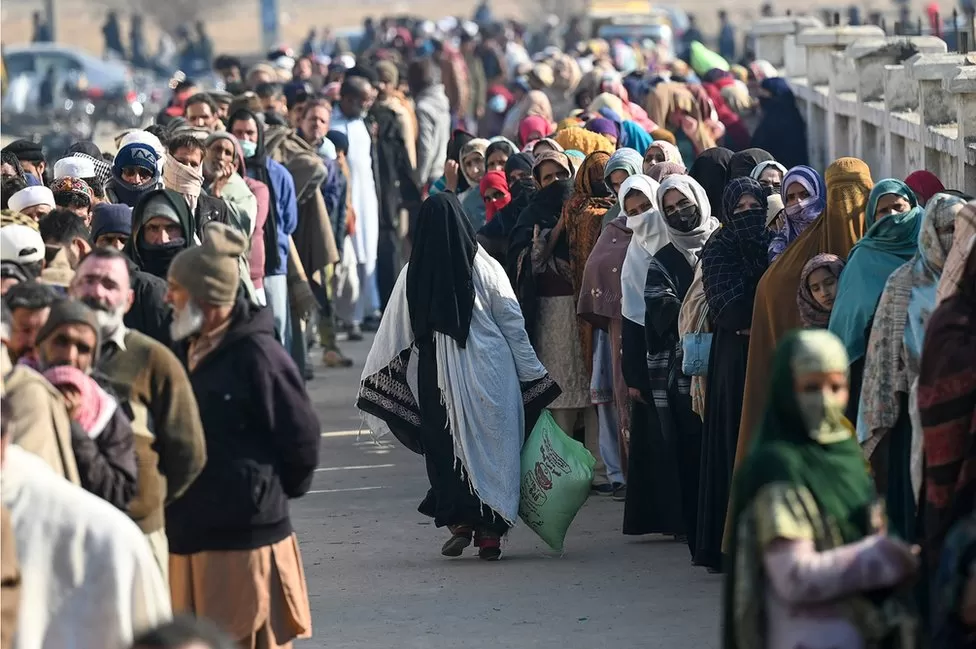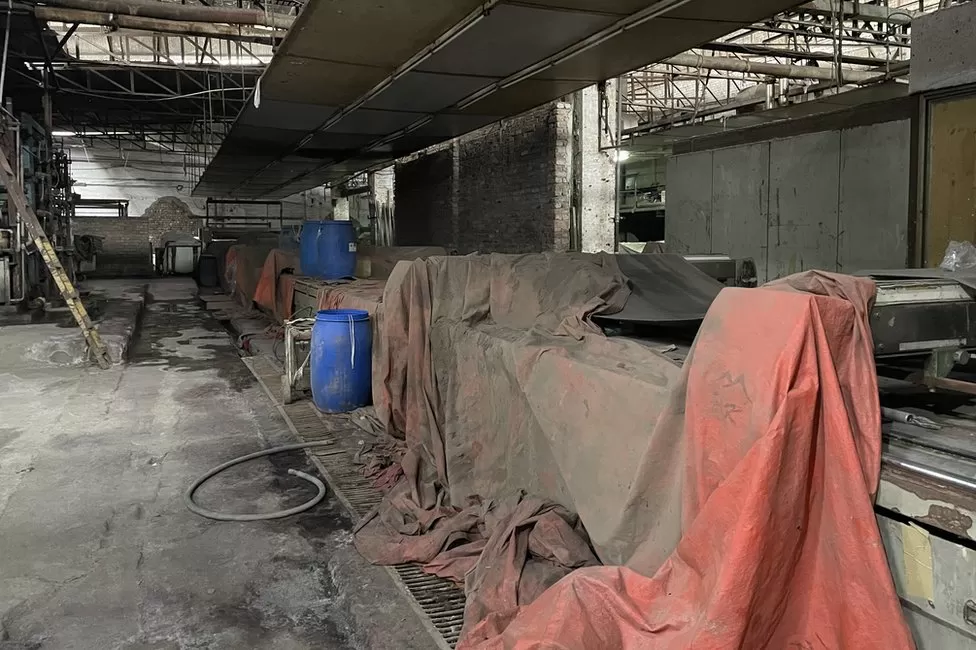Pakistan is holding last-ditch talks with the International Monetary Fund (IMF) to secure help to stem a deepening economic crisis that has all but emptied its foreign exchange reserves.
It has enough dollars to cover less than a month of imports at normal levels and is struggling to service sky-high levels of foreign debt.
An IMF team is due to leave the country on Thursday after 10 days of talks with the government aimed at unlocking vital international funds.

In January annual inflation soared to over 27%, the highest its been in Pakistan since 1975, and there are mounting fears for the economy in a pivotal election year.
This week the rupee sank to a historic low of 275 to the dollar, down from 175 a year ago, making it more expensive for Pakistan to buy and pay for things.
The lack of foreign currency is one of the most pressing of Pakistan’s problems.
Factories like Jubilee Textiles in Faisalabad, the industrial heartland of Pakistan, were shut recently – not by the frequent power cuts that have dogged Pakistan for years, but because they couldn’t get hold of dollars to pay for the goods they need.

“If we can’t import, how can we manufacture? We’ve already made a loss,” its manager Fahim told, adding that all its 300 workers had been sent home.
Jubilee’s printing machines have only just restarted after shutting last month. Piles of white cotton sheets sat in iron tubs, covered by a light coat of brick dust, when visited, with the only sound the drip, drip of an industrial washer.
Walking through the network of frozen machines, Fahim said the factory had run out of the dyes they import from China, not because they weren’t available, but because they say their bank wouldn’t clear the dollars to pay for them for weeks.
According to analysts, the government had been holding the bank’s exchange rate artificially high behind the scenes which was contributing to the lack of dollars in the system. At the end of last month, they allowed it to drop, which could help some businesses, but also push prices up.
BBC






